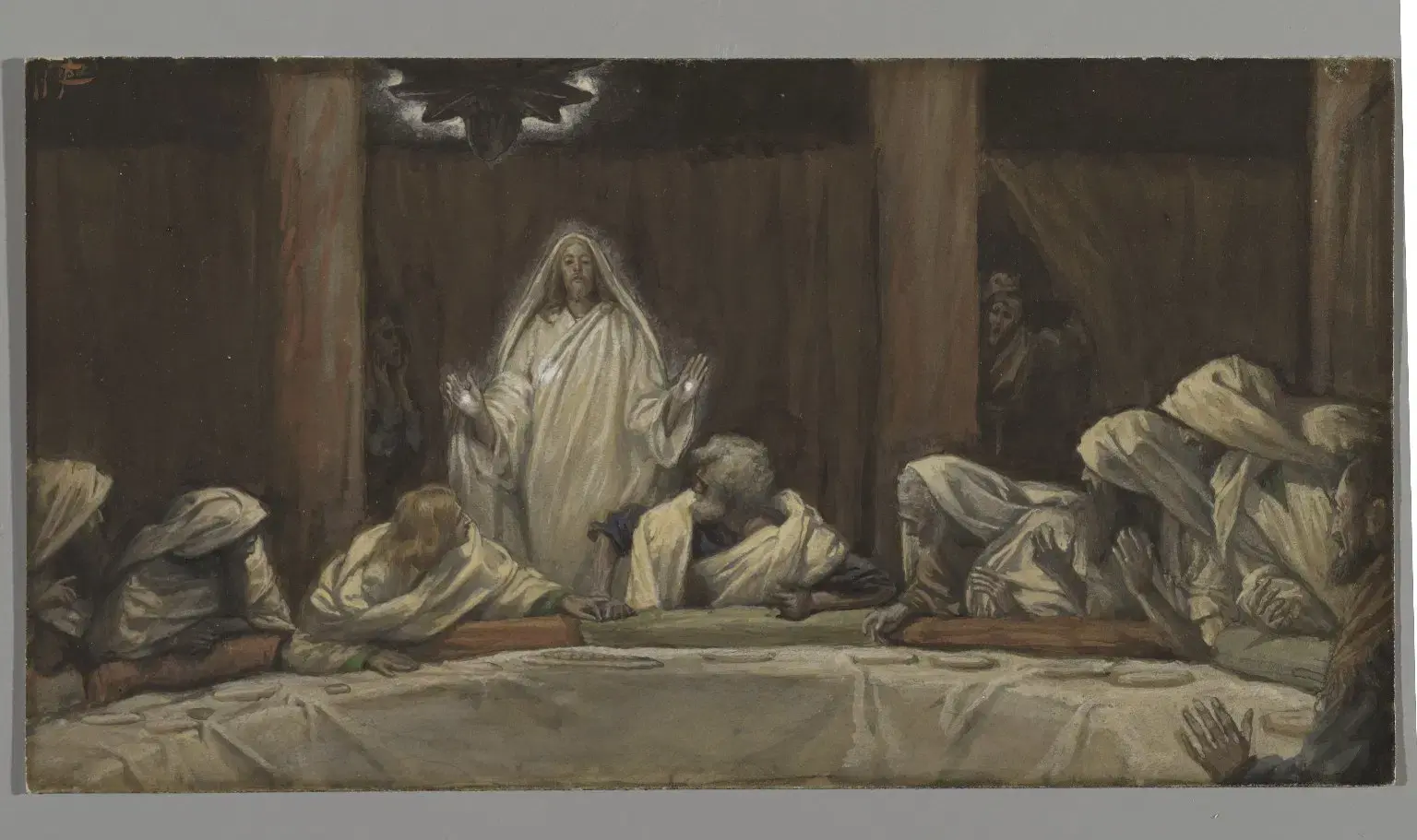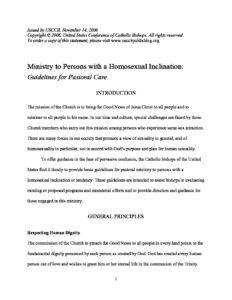This essay first appeared in our weekly Scripture reflection newsletter on June 7, 2025.
At the beginning of today’s Gospel, for Pentecost Sunday, the disciples are locked behind closed doors in the evening. But why? Just earlier that day, Mary Magdalene had raced from the empty tomb to proclaim the greatest news ever: “I have seen the Lord!”
So why are they cowering in fear? Well, John’s Gospel tells us that it is because of “fear of the Jews.” Now, as ever, we must bear in mind that all the disciples (not to mention Mary Magdalene and not to mention Jesus) were Jewish. John often uses the phrase “the Jews” (hoi Ioudaioi) as a shorthand for all those who oppose Jesus. Apparently, the disciples have either not believed Mary, or they did believe her but are still afraid to come out from hiding, out of fear of being in some way attacked.
This is often the way that some of us approach life and life in the church—with fear. On the one hand, you could argue that sometimes fear is sensible. If you are walking down a dark street and see a shadowy figure coming toward you, some fear might lead you to cross the street. You could also argue that the disciples are acting sensibly: in the wake of Jesus’s crucifixion for sedition, there may have been a real threat that the same Roman authorities who put Jesus to death would be on the lookout for his disciples.
What keeps them locked behind closed doors is what keeps us locked behind closed doors: not simply fear, but the belief that God could never bring anything good out of a bad situation. It’s a form of despair.
But from a spiritual point of view, their fear makes no sense. In John’s Gospel, Jesus had, towards the beginning of his ministry, told them about his death and resurrection (2:19). More recently, they had just seen him raise Lazarus from the dead (not to mention all the other “signs” they witnessed during his public ministry). Moreover, Mary Magdalene, whom they knew well, had told them a few hours before that Jesus had risen from the dead.
What keeps them locked behind closed doors is what keeps us locked behind closed doors: not simply fear, but the belief that God could never bring anything good out of a bad situation. It’s a form of despair. Thomas Merton wrote that despair is “the ultimate development of a pride so great and so stiff-necked that it selects the absolute misery of damnation rather than accept happiness from the hands of God and thereby acknowledge that God is above us and that we are not capable of fulfilling our destiny by ourselves.”
That’s a pretty harsh judgment on those who fall into despair, but it basically means that despair is refusing to believe that God can do more than we can imagine. Ultimately, it’s a form of pride because it says, “I know better than God. And what I know is that God cannot change this.”
What finally enables the disciples to believe is the presence of the Risen Christ. And his showing them his hands and his side is proof that it is him. “It’s me,” he’s saying. One of my favorite passages of New Testament criticism comes from my former professor Stanley Marrow, S.J., who wrote about this event:
“The risen Lord had to be recognizably and identifiably the Jesus of Nazareth, the man whom the disciples knew and followed, whom they saw and heard, with whom they ate and because of whom they now cowered behind closed doors for ‘fear of the Jews.’ For him to have risen as any other than the Jesus of Nazareth that they knew would void the resurrection of all its meaning. The one they had confessed as their risen Lord is the same Jesus of Nazareth that they had known and followed. Showing them ‘his hands and his side,’ which bore the marks of the crucifixion and the pierce by the lance, was not a theatrical gesture, but the necessary credentials of the identity of the risen Lord, who stood before them, with the crucified Jesus of Nazareth whom they knew.”
What enables the disciples to be fearless, to not despair, is a direct encounter with the Risen Christ.
What enables the disciples to be fearless, to not despair, is a direct encounter with the Risen Christ.
Now some of us might say, “If I had that kind of experience I would be fearless too!” But you have had those kinds of experiences—not as dramatic as the disciples of course, but in your own life.
I would bet that everyone reading this has had at least one powerful experience of God’s presence: whether praying on a retreat; singing during a Mass; walking by the ocean; hearing a kind word during time of crisis; spending time with a friend, partner or spouse; seeing a newborn baby; reading a book; or even quietly praying at home. The key is to recognize these experiences as “signs” of God’s presence and God’s desire to communicate his love. And this should embolden us to proclaim the Good News without fear.
Unlike the disciples, we have already received the Holy Spirit—at our baptisms. And unlike the disciples, we already know that Christ is risen. Like the disciples, however, we have encountered the Risen One and are now invited to be bold proclaimers of the Gospel. Confident in God’s love for us. Bold in proclamation. And overall, fearless.



